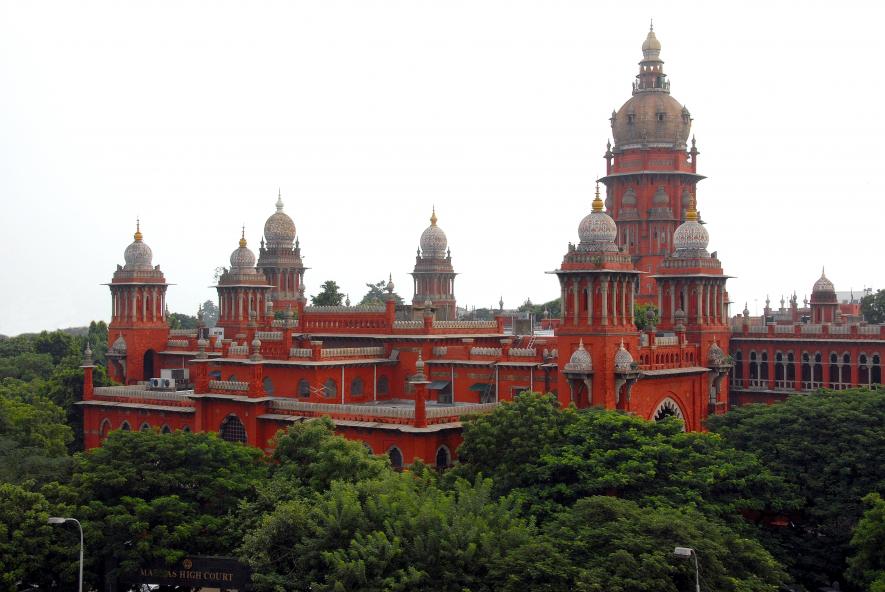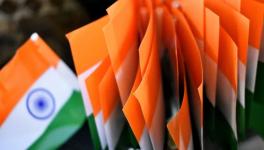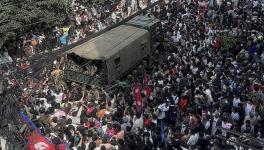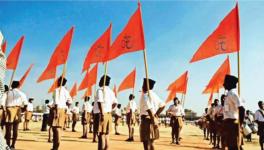Madras High Court Grants Bail to Eight PFI Members Accused Under UAPA

Image Courtesy:Wikimedia Commons
Chennai: In a significant legal development, the Madras High Court has recently granted bail to eight individuals accused of being members of the banned Popular Front of India (PFI) in a case registered under the Unlawful Activities Prevention Act (UAPA). The case alleged that these individuals conspired to commit terrorist acts across India. A Bench of Justices SS Sundar and Sunder Mohan delivered the verdict, emphasising the absence of direct evidence linking the accused to any terrorist activities.
The National Investigating Agency (NIA) charged the appellants with collecting funds for the purpose of "committing terrorist acts." The NIA presented various documents, including images featuring markings of Rashtriya Swayamsevak Sangh (RSS) leaders and other Hindu organisations, suggesting that these leaders were targeted on a "hit list."
According to a report published in Bar and Bench, the Court, however, took a critical stance on this evidence, stating, "Some of the photographs of activists and leaders of RSS or other Hindu Organisations are also captured with specific marking. The interpretation was that the marking would indicate that persons marked are targeted as if they are on the 'Hit List' of PFI. When the contents are allowed to be interpreted by one's vivid imagination, one may tend to believe that A6 may pose a potential threat. However, the involvement of A6 in any terrorist act or his association with a terrorist Organisation cannot be inferred from any of these documents."
The NIA also argued that PFI had a "vision document" outlining its objective to gain political power and work towards establishing an Islamic government in India by 2047. The High Court, however, underlined the lack of material connecting the appellants to this "vision document" and emphasised that serious accusations appeared to be based on probabilities, lacking direct evidence.
The Court further noted that apart from witness statements claiming that some of the appellants had organised weapon training with knives and swords, there was no additional evidence demonstrating the involvement of the accused in any terrorist acts or membership in a terrorist organisation. The Court clarified, "When PFI is only declared as an unlawful Association and not a terrorist organisation so far, any preparatory act in the context should be construed as one in defence and not to perpetrate any terrorist act."
The appellants had been arrested in September of the previous year, with the NIA alleging that the Union government had received information regarding their conspiracy to organise terrorist acts in several states, including Kerala, Tamil Nadu, and Uttar Pradesh. Their initial request for bail was denied by a special court in January of this year, prompting the appeal to the Madras High Court.
Senior Advocate T Mohan and Advocates A Raja Mohamed and I Abdul Basith represented the appellants, while Additional Solicitor General ARL Sundaresan and Special Public Prosecutor (NIA cases) R Karthikeyan appeared for the NIA.
This bail decision by the Madras High Court has sparked discussions regarding the burden of proof in cases involving alleged terrorism and the need for concrete evidence to establish connections to such activities.
Get the latest reports & analysis with people's perspective on Protests, movements & deep analytical videos, discussions of the current affairs in your Telegram app. Subscribe to NewsClick's Telegram channel & get Real-Time updates on stories, as they get published on our website.
























